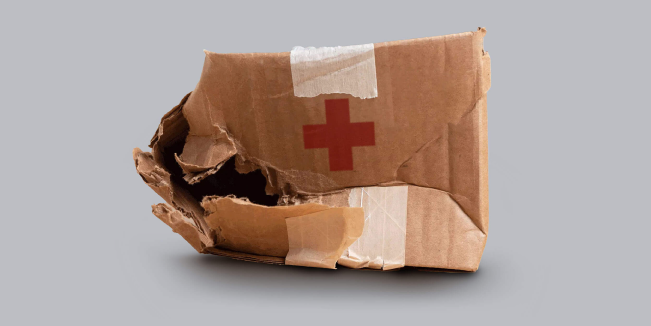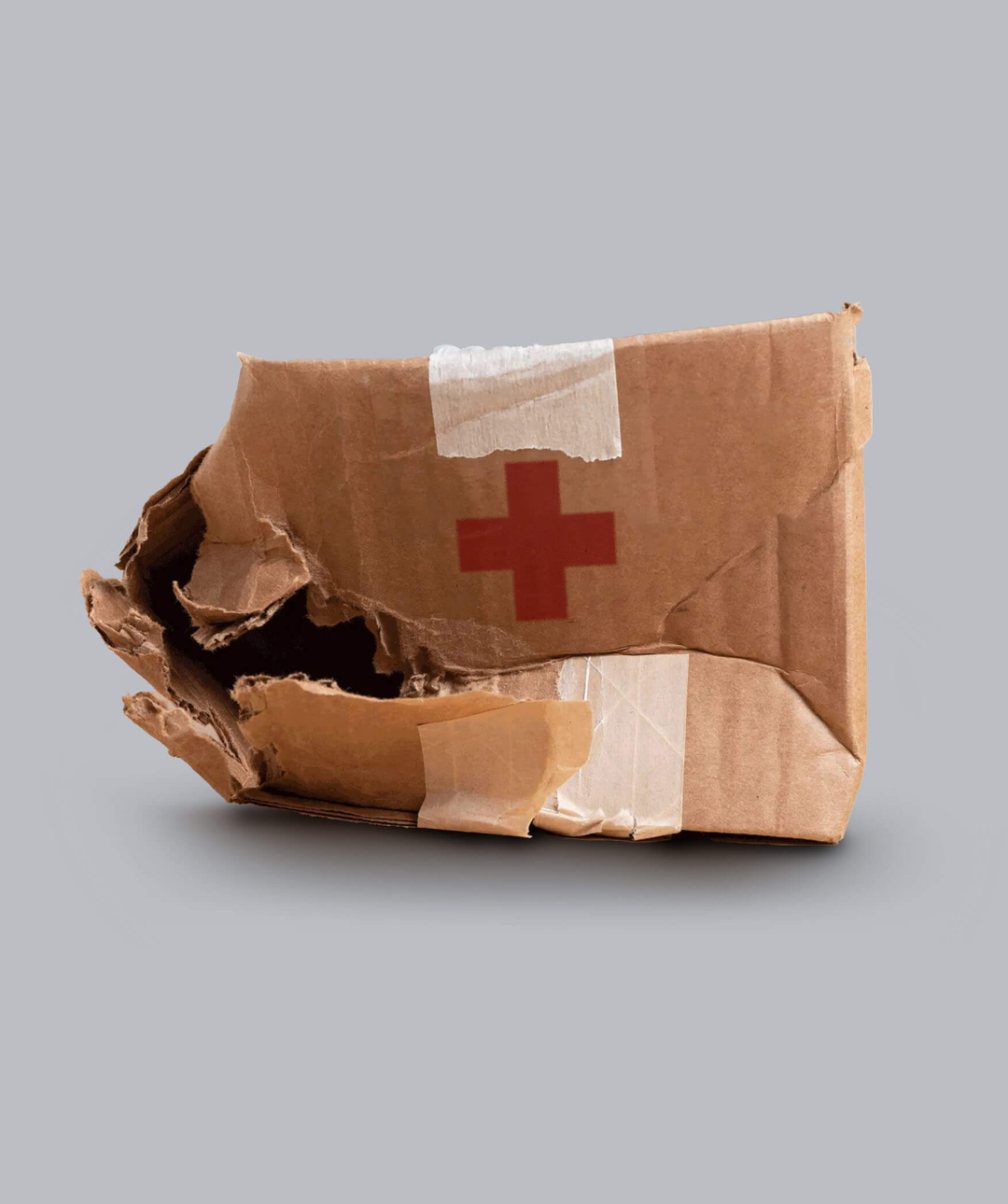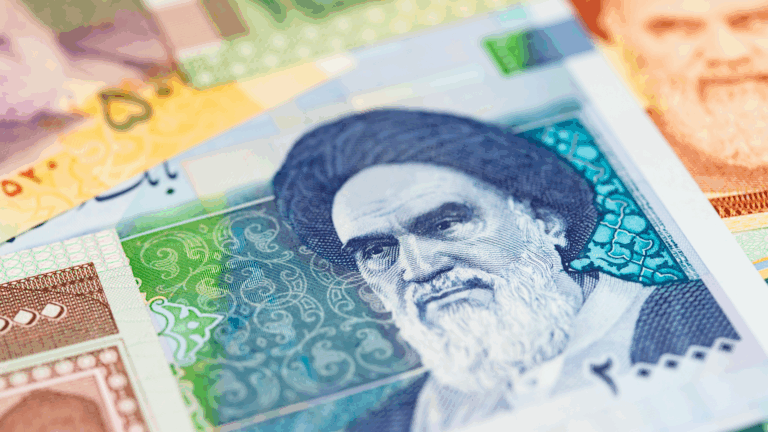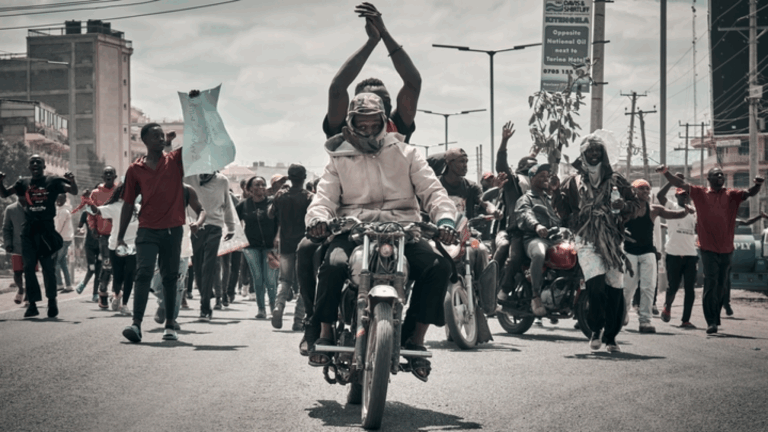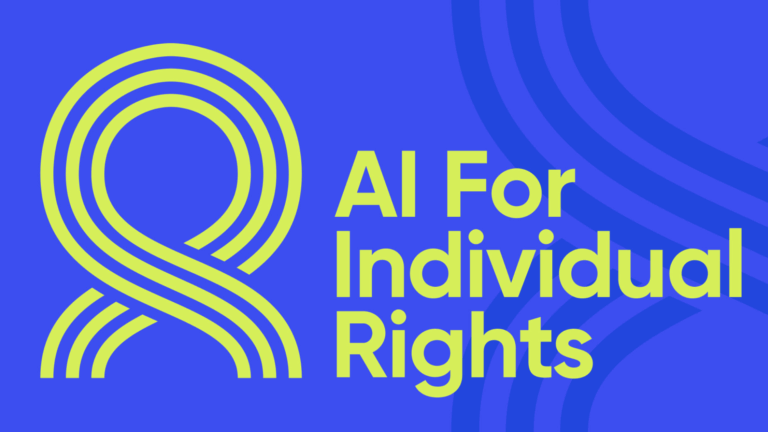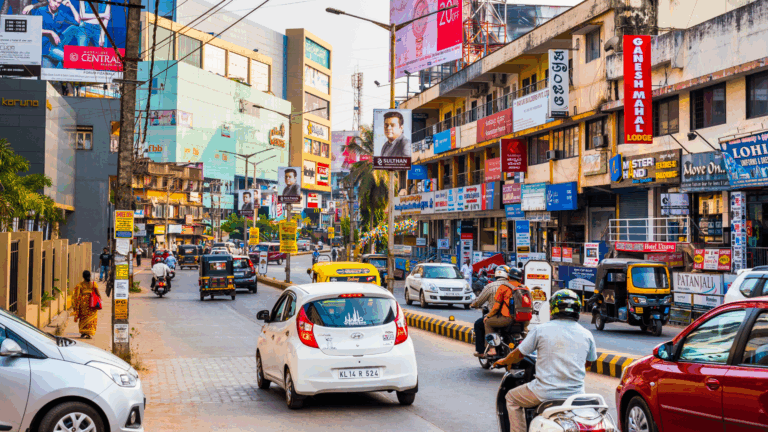Nights are quiet in Bucha. Over the past several months, Russia has deliberately targeted Ukraine’s energy grid with persistent missile strikes. As a result, cities across Ukraine are dark. In one house, a group of volunteers with headlamps sorts through a labyrinth of boxes, 25 tons in total, placing non-perishable food items in one corner, hygiene products in another, and donated clothes and blankets in the third. The team will squeeze as many boxes as they can into a van — they joke that they are now “masters of box Tetris” — and drive it to Kharkiv in the east.
This is a typical evening for humanitarian aid organizations like Renegade Relief Runners, HRF’s partner organization and one of the 740 NGOs that have provided aid to almost 14 million people since the beginning of the war in Ukraine. Renegade Relief Runners delivers essential supplies, including food, clean water, and medical aid, to Ukraine’s most heavily impacted regions. The small team — composed entirely of volunteers from around the world — is one of the many that quickly formed in the spring of 2022.
“Our tagline is: ‘We just want to help Ukraine,’” Chris Tiller, co-founder of Renegade Relief Runners along with Julia Abratańsk, said. “It’s kept us motivated and focused through all the trials and tribulations of providing humanitarian aid to a war-torn country.”
As we round the one-year anniversary of Russia’s invasion, local and international aid organizations are reflecting on their operations and taking stock of Ukraine’s current humanitarian needs. Approximately 17.6 million Ukrainians — more than 40% of the country’s population — now require humanitarian assistance. For nonprofits on the ground, it’s clear the war’s progression has resulted in an evolving and escalating need for aid.
The largest shift in need has resulted from Russia’s deliberate attacks on Ukraine’s power grid. On Oct. 10, the Russian military began launching missiles and Iranian drones at Ukraine’s power plants on a near-daily basis. Within 10 days, 30-40% of the nation’s infrastructure was damaged. By December, that number had risen to 50%. Millions of people currently have sporadic or no access to electricity, which poses a major health hazard during the winter, when temperatures average between 23-36 degrees F (-4.8-2 C) and can drop to -4 F (-20 C).
The less obvious but more dire effect of the power grid damage is the collapse of sewage and clean water systems. In Kyiv, Ukraine’s most densely populated city, some residents now line up with empty jugs and buckets at city wells. In the more remote villages, such as those in the eastern regions where extended electric-powered pipelines usually pump clean water, potable water is scarce, making communities susceptible to cholera outbreaks.
Russian missile attacks and artillery shelling have destroyed tens of thousands of homes in the process, leading to a nationwide housing crisis. Of the 6.2 million internally displaced people fleeing active conflict, 116,000 have made their way into collective centers in gymnasiums, factories, and offices, which lack appropriate living conditions. While they provide temporary relief for refugees, they suffer from overcrowding, poor sanitation, and lack of insulation and fuel. As a result, some have opted to stay in their destroyed homes.
Despite the challenges of getting aid to all those in need, there’s reason to hope. Over the last year, Ukrainian civil society has mobilized to create a better, stronger, and more robust infrastructure for humanitarian aid.
In one week, Renegade Relief Runners’ house in Bucha piles up with boxes of donated winter clothes, sleeping bags, hand-warmers, blankets, nonperishables, hygiene kits, feminine products, Tylenol, toilet paper, and many more basic necessities — only to be emptied and distributed the next. Last week, they took more than eight tons of aid in four minivans to a hospital, refugee shelter, and less accessible villages in Kharkiv. In anticipation of a Russian offensive in the coming months, they’re helping people stock up on food and hygiene supplies and evacuating anyone who wants to leave the area.
Renegade Relief Runners also supplies aid to neighboring communities in Bucha and Hostomel, who have taken refuge in makeshift shelters and destroyed buildings. In addition to providing basic supplies, they help people install indoor wood-burning heater boxes. Other NGOs and the UN are working to build temporary modular homes for refugees in this area.
One of the team’s recent initiatives focuses on delivering PAUL water filtration systems, which can produce 1,200 liters of water per day with no electricity, to remote villages on the frontline. To reach villages outside frontline cities like Mikolaiv and Kherson, Renegade Relief Runners must navigate minefields, destroyed roads, and the constant threat of Russian artillery. But thanks to their courage and the support of donors from all over the world, their newly deployed systems will get three liters of water per day to 25,000 people indefinitely.
Russia’s war is murderous and evil, but Ukrainians have responded with vigor and determination. Strangers have opened their homes to refugees. Aid workers have risked — and sometimes given — their lives to deliver essential supplies to those in need. Millions of people across the world have donated their time, money, and resources to ensure that Ukrainians win the war.
While Ukraine may not be making the same daily headlines as it did a year ago, the war is far from over. Ukrainian civil society has mobilized to defend democracy not only within its borders but worldwide. Ukraine has not given up on democracy. And those of us in democratic countries cannot give up on Ukraine.


